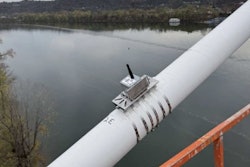
Georgia’s State Route 400 Express Lanes Project got a shot in the arm this month with a record-breaking loan from the U.S. Department of Transportation.
A loan of up to $3.89 billion has been approved for the public-private partnership building the express lanes project in Atlanta. The money from the Build America Bureau, through the Transportation Infrastructure Finance and Innovation Act, is the largest single loan in USDOT’s history.
The project will add new express lanes in both directions along a 16-mile section from McGinnis Ferry Road in Fulton County and McFarland Parkway in Forsyth County. By paying the new lanes’ variable-priced tolls – meaning prices will adjust with traffic levels – drivers will be able to bypass congestion.
A bus rapid transit system will be added to the project corridor, giving transit providers access to the new express lanes at several points.
Expected benefits from the 400 Express Lanes Project include 19,000 hours in reduced delays per day and enhanced public safety via new bridges and general improvements. Construction is scheduled to begin next year and be completed in 2031.
Funded through a public-private partnership, the contractor will make a concession payment of $4.05 billion to the state; design, build, finance and operate the project; and collect all generated toll revenue. SR 400 Peach Partners estimated a total construction cost of $4.6 billion.
The partnership receiving the TIFIA loan consists of the Georgia Department of Transportation, the State Road and Tollway Authority, and the project’s contractor, SR 400 Peach Partners, LLC. Members of the SR 400 Peach Partners group include ACS Infrastructure, Meridiam, Acciona Concesiones, Acciona Construction, Dragados and Parsons.
The new TIFIA loan builds on USDOT’s previously allocated $3.4 billion in Private Activity Bonds for this project for a total investment of $7.5 billion.











